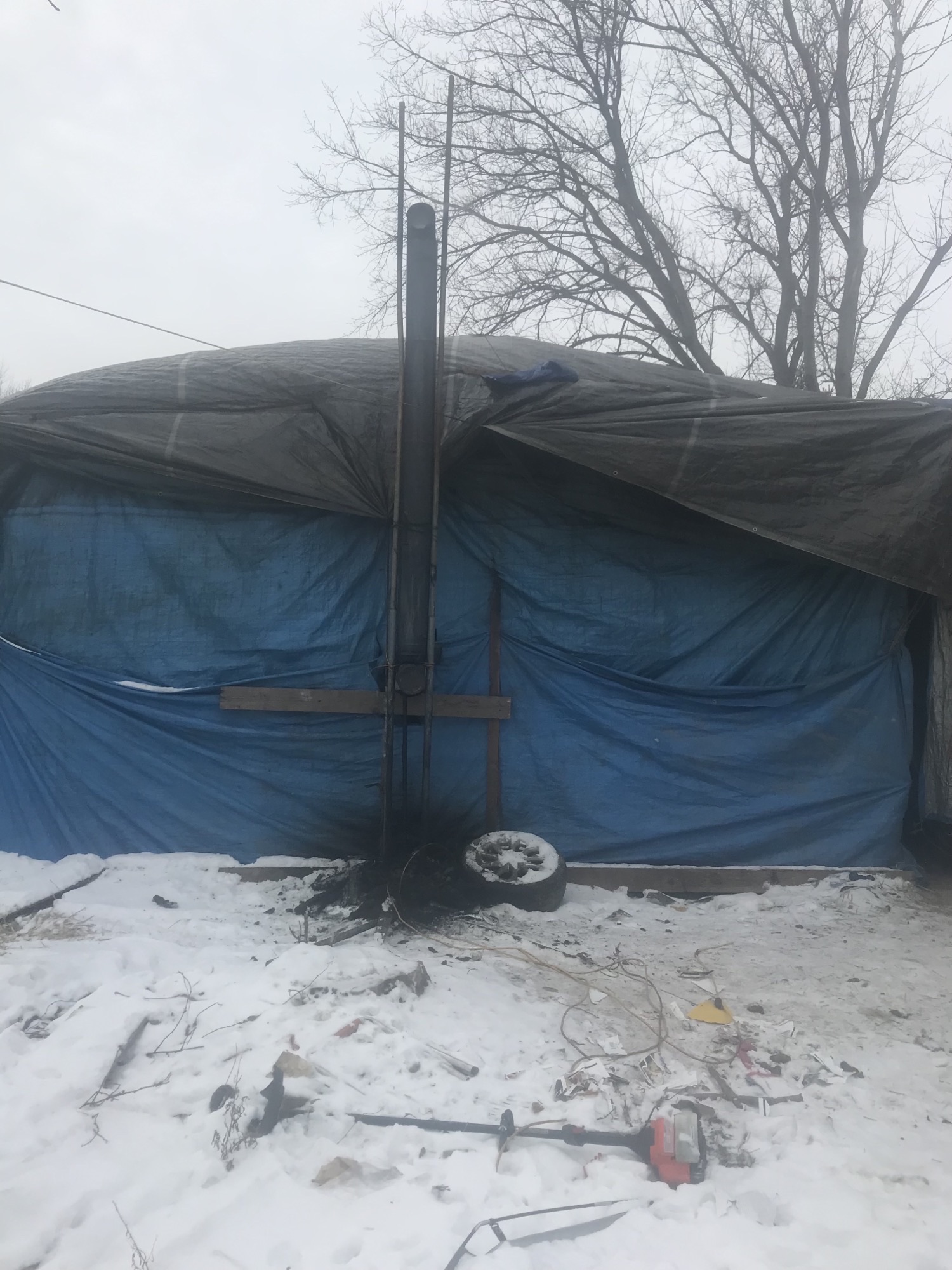Click to start adding your content...
In August 2022, at the time of the story recording, Allison was a participant in the emergency shelter motel program in Middlesex County. Allison is twenty-five years of age.
Allison experienced homelessness on and off as a youth, beginning at the age of fifteen-years old. Allison shares that the major contributor to her experiencing homelessness was the abuse she faced by her family.
"I wish that when I was younger I could've gotten into housing or had counselling support for the abuse that I went through. I think I'd probably be doing a lot better right now if I'd had those things. Since I couldn't get out of the abuse safely, it literally led to me being homeless."
As a youth, Allison was living in Lambton County. When asked about what it was like accessing resources for youth experiencing homelessness, Allison replied:
"It was difficult to get Ontario Works and it was difficult to get a place to live."
Unfortunately, for many youth, especially between the ages of sixteen to eighteen, it is even more of a struggle being homeless. For Allison, she was 'too old' to access Children's Aid Society services as the majority of their supportive services only go up to sixteen years of age. She was 'too young' to access adult services for people facing abuse or violence as the majority of these supportive services start at eighteen years of age. If a youth is under eighteen years of age, when applying for Ontario Works, they need to meet a number of additional requirements in order to qualify, which includes having a trustee attached to the file.
This can be a barrier for youth under eighteen years of age, limiting a source of funding for food, shelter, and other essential needs. As well, accessing emergency food services can be a challenge.
"For kids who are homeless but still going to school, a lot of the time, soup kitchens or food banks are only open during school hours. So, you could only go on the weekends."
Due to the additional requirements and difficulty securing a trustee to be eligible for Ontario Works, many youth are placed in a position where they need to return to unsafe living conditions as they are unable to secure financial supports. For Allison, this unfortunately was the situation she faced.
"I would be at the shelter for a few weeks, and then I would have to sofa surf. Eventually though, I had to go back to my family because I couldn't get any of the benefits back then."
At age 19, Allison attended college for business and general arts. But after college, Allison was once again experiencing homelessness.
"I ended up going back to the same people who abused me because I was used to it as a younger person, used to being forced to go back... it had become a habit."
Allison shares that after a night facing abuse at home, she left and made her way to Middlesex County and was accepted into the emergency shelter motel program.
"It hasn't been that bad, at least I have an actual shelter here at the motel. It's not like being so homeless that I'm staying under a flight of stairs somewhere and having to go to Walmart to get water from a water bottle. Or even living off of just beef jerky which is not fun. You only get one package of jerky and you have to make that last for a week, so you really only get one or two pieces a day."
Allison credits the friendships she has made over the years for helping her experience more manageable. She also recognizes that her work researching and understanding what resources and supports are available in the area, helped her survive her experience.
When Allison was asked what she wants people to understand about homelessness, this was her response:
"The state of homelessness has been a problem for years and it has gotten progressively worse with the pandemic, like people have lost their businesses, people have lost their jobs, and sometimes they cannot get back into that industry."
Allison adds:
"Being homeless affects everyone; it's very diverse. You can have people who had a business become homeless, you can have doctors or veterinarians; it's not just bums and it's not just drug addicts. There are people who through no fault of their own, have become homeless. I want people to understand that it's not all about being lazy or not trying, it's the fact that sometimes people have bumps in the road and it's hard to recover from them."
In March of 2021, Greg was scheduled for a virtual hearing with his landlord. However, Greg was not made aware of the fact that the hearing was scheduled virtually. He thought it was in-person. This unfortunately resulted in Greg missing the hearing and his opportunity to present evidence in support of his case.
"On June 7th in 2021, I was given an eviction notice. Since then, I have been living on the streets with my daughter, and my four grandkids, who are 3, 4, 7, and 9."
After Greg was evicted from his rental in Strathroy, he and his family lived on the side of the Thames river in tents for two months. But Greg knew this couldn't be a permanent living situation in the winter months. A friend of Greg's offered him an old trailer to use.
"I knew winter was coming and wanted something more closed up for the children."
Greg did some work on the trailer, added a portable heater and laid a tarp over the top for extra warmth for his family during the winter. He also added a fence so that his grandchildren could have a safe place to play outside of the trailer. He was fortunate to have the knowledge and skills to modify the trailer to support all-season living conditions.

"The reserve we were living on told us we needed to leave. I was able to get us into a motel in Chatham, but we were only able to live there for a week and a half. That was when we moved back to Strathroy and into this motel."
It is challenging to experience homelessness as a single individual, but Greg's situation is even more complicated - he has his daughter and his four grandchildren to support. This increases his overall expenses and makes it more difficult to find a rental that can support a family of this size. The other major challenge that Greg has faced is that his social assistance payment has not increased over the years. Inflation has increased the price of groceries, rent, gas, and more.
Greg has also had to deal with added expenses related to moving into the motel. For example, he is paying for a storage locker where most of his furniture is being stored. Also, as Greg is not a resident of Strathroy, he has to pay for a mailbox at the post office in order to receive his mail. Experiencing homelessness can be expensive. It can be very challenging to save money to afford a rental - continuing the cycle of poverty.
Greg cares deeply for his grandchildren and their struggles with homelessness adds an incredible amount of pressure on him as he wants to care for them as best he can.
"My experience has mostly been looking after the kids and making sure they are fed and have everything they need. I've tried to get them into school but they can't go to school unless they're collecting taxes from where you are residing - which they are not. Trying to do school online has also been a struggle because it's hard to have Wi-Fi when you're homeless."
Even though Greg is Indigenous and has a status card, he cannot access the local supports because they are not within his band. His own band lost their land some time ago. He feels supports for individuals experiencing homelessness are lacking.
"I haven't heard anything from (affordable) housing and I've been on it for seven years now. I've been on emergency housing for a year-and-a-half but I still haven't heard anything, which is frustrating. To make matters worse, most of the temporary (affordable) housing situations here are only for two or three months. It wouldn't make sense for me to take all of my stuff out of a storage unit that I have a good deal on. It's not cheap being homeless, everyone thinks we can just walk away from stuff, but you can't when you have responsibilities."
When asked about what he hopes will change as the result of sharing his story, Greg replied:
"I hope the government stops avoiding the issue of homelessness and actually does something about it. We cannot afford down payments on houses, let alone rent. They need to find a solution."
Greg's most important goal throughout all of this experience has been keeping the family together. When asked what he thought has helped him get through it all, this was Greg's response:
"My grandkids are my rock. After I came to Strathroy, I ended up in the hospital in a five-day coma. The only thing that kept me going was my grandkidsand that I have them to come back to. That's about everything to me."
